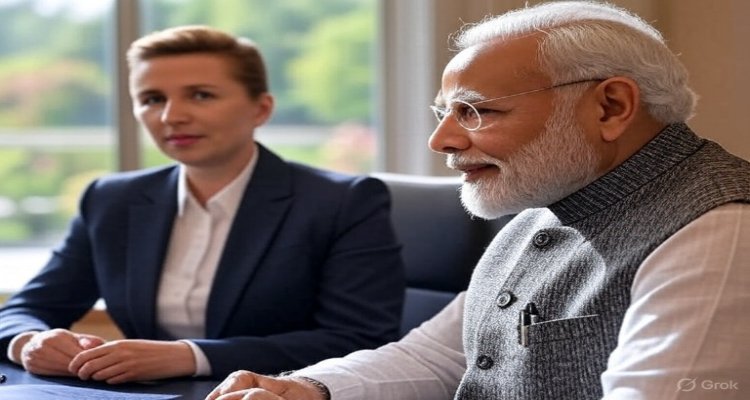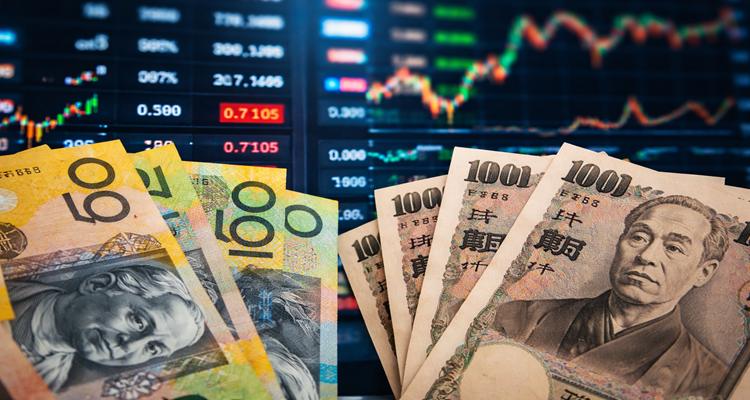Modi, Danish PM Frederiksen Discuss Green Strategic Partnership

Introduction
In a significant reaffirmation of their shared vision for sustainable growth, Prime Minister Narendra Modi held a telephonic conversation with Danish Prime Minister Mette Frederiksen on September 16, highlighting the deepening of the India–Denmark Green Strategic Partnership. The discussion underscored cooperation in key areas such as clean energy, sustainable development, investment, and innovation while also touching upon upcoming global challenges, including AI governance and free trade negotiations.
Context & Background
India and Denmark have maintained diplomatic relations since September 1949, rooted in shared democratic traditions, historical ties, and a mutual desire for peace and stability. Over the decades, the bilateral relationship has evolved through high-level visits, strategic agreements, and economic partnerships.
A major milestone came during the Virtual Summit in September 2020, when the relationship was elevated to a Green Strategic Partnership, making Denmark the first Nordic country with which India entered into such an agreement. This framework aligns closely with both the Paris Agreement and the UN Sustainable Development Goals, emphasizing green growth, clean technology, renewable energy, and job creation.
The ties are reinforced through institutional frameworks such as the Joint Commission Meeting at the Foreign Ministers’ level and Foreign Office Consultations at the Secretary-level. These platforms have enabled structured dialogue and coordination across trade, innovation, and environmental cooperation.
Main Developments
During the latest exchange, both leaders reaffirmed their commitment to accelerate collaboration across sectors like water management, food processing, energy transition, and sustainable urban development.
-
India-EU Free Trade Agreement: Prime Minister Frederiksen expressed strong support for finalizing a mutually beneficial India-EU Free Trade Agreement at the earliest possible stage.
-
AI Impact Summit 2026: Denmark also pledged support for the AI Impact Summit, to be hosted by India next year, recognizing the importance of balancing technological innovation with ethical policies and societal impact.
-
Global and Regional Cooperation: Modi extended best wishes for Denmark’s ongoing Presidency of the Council of the European Union and its non-permanent membership of the United Nations Security Council, acknowledging Denmark’s role in shaping global diplomacy.
These discussions highlight the increasingly multidimensional nature of the partnership, moving beyond economics to cover technology, sustainability, and global governance.
Expert Insight and Reactions
Analysts view the conversation as reflective of India’s broader push to strengthen ties with Europe through climate-focused and innovation-driven initiatives. Dr. Priya Rao, a Delhi-based international relations scholar, noted:
“The Green Strategic Partnership with Denmark is an exemplar of how India is widening its global network of sustainable allies. Denmark brings cutting-edge technological expertise in renewable energy and agriculture, while India provides scale, market, and implementation capacity. Together, they form a model for green diplomacy.”
Danish commentators, meanwhile, emphasize the convergence of values. Sustainability consultant Anders Jensen said:
“This partnership reflects Denmark’s belief that future prosperity must be green. Working with India—a fast-growing economy—provides opportunities to export Danish solutions in areas like wind power and smart city design, while helping achieve global emissions targets.”
Impact & Implications
The strengthened partnership carries several implications:
-
Trade Expansion: Bilateral trade between India and Denmark has already touched $5.3 billion in 2023. With a free trade agreement, these numbers are expected to rise significantly, benefiting industries ranging from textiles and pharmaceuticals to industrial machinery and green technology.
-
Investment Growth: Currently, around 200 Danish companies are active in India across shipping, renewable energy, and smart urban development. Rising collaboration is likely to encourage more joint ventures under India’s Make in India program.
-
Sustainability Outcomes: Shared commitment to green growth contributes to the Paris Agreement targets and the UN Sustainable Development Goals, addressing climate challenges while creating green jobs.
-
Geopolitical Leverage: India strengthens its European outreach by aligning with Denmark—an EU member and active UN player. This may help in balancing India’s strategic positioning in an increasingly multipolar world.
-
Migration and People-to-People Ties: Following the Migration and Mobility Partnership Agreement signed in February 2024, collaboration will likely increase mobility of skilled professionals. The presence of an Indian community of about 21,000 in Denmark further enhances cultural bridges.
Conclusion
The Modi–Frederiksen conversation reaffirms India and Denmark’s shared approach to green growth, innovation, and global governance. By prioritizing sustainability alongside trade and technology, the Green Strategic Partnership stands out as a forward-looking model of international cooperation. As both nations prepare for upcoming milestones—India’s hosting of the AI Impact Summit in 2026 and discussions on an India-EU Free Trade Agreement—the partnership is set to play a pivotal role in shaping the contours of sustainable diplomacy in the 21st century.
Disclaimer : This article is an original piece based on publicly available information and official press releases. It is intended for informational and journalistic purposes only.










